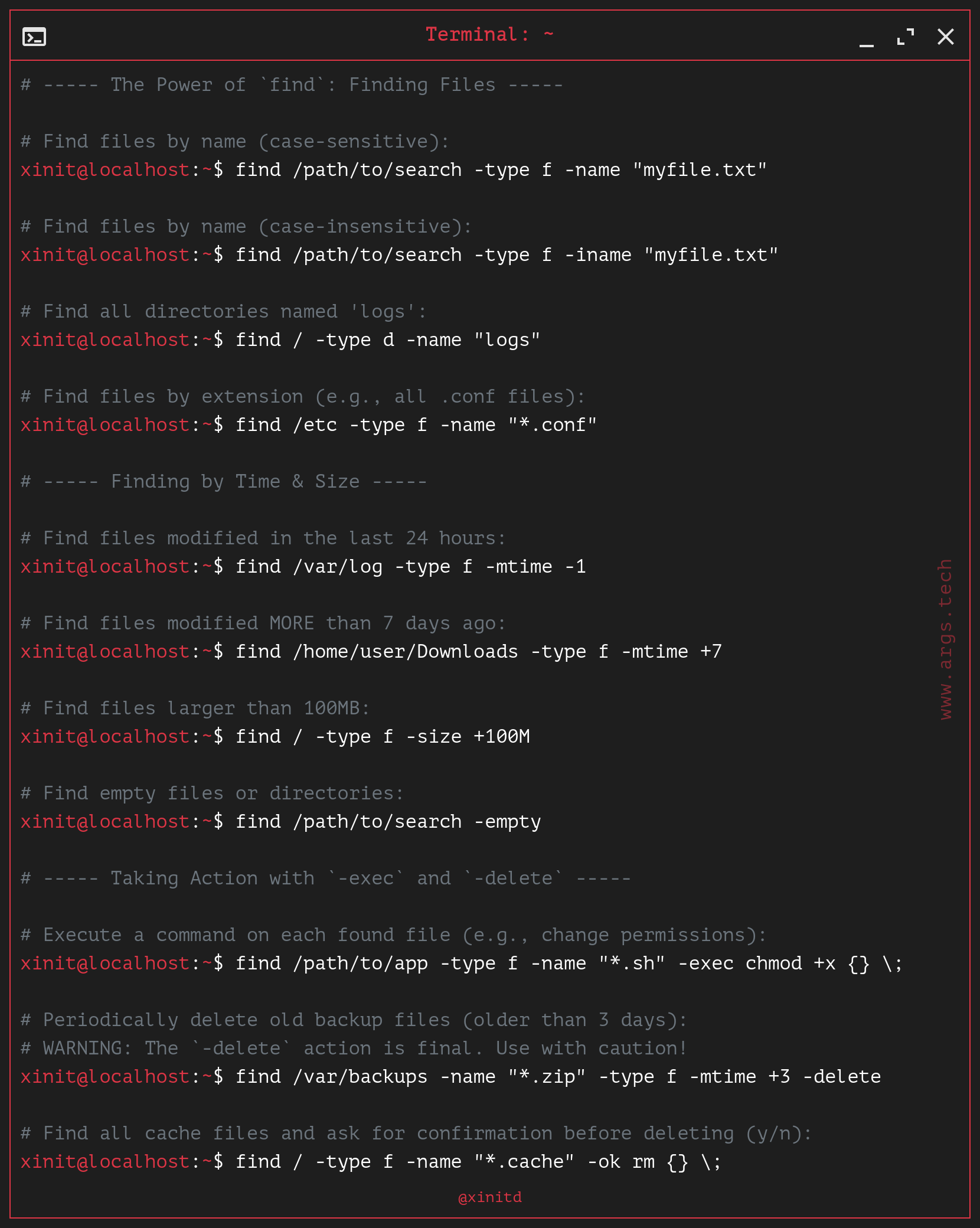Master the "find" command in Linux: A practical cheatsheet
# Go beyond simple file search. Learn how to use the Linux "find" command to locate
# files by name, time, and size, and perform actions like `delete` or `chmod`.
# ----- The Power of `find`: Finding Files -----
# Find files by name (case-sensitive):
xinit@localhost:~$ find /path/to/search -type f -name "myfile.txt"
# Find files by name (case-insensitive):
xinit@localhost:~$ find /path/to/search -type f -iname "myfile.txt"
# Find all directories named 'logs':
xinit@localhost:~$ find / -type d -name "logs"
# Find files by extension (e.g., all .conf files):
xinit@localhost:~$ find /etc -type f -name "*.conf"
# ----- Finding by Time & Size -----
# Find files modified in the last 24 hours:
xinit@localhost:~$ find /var/log -type f -mtime -1
# Find files modified MORE than 7 days ago:
xinit@localhost:~$ find /home/user/Downloads -type f -mtime +7
# Find files larger than 100MB:
xinit@localhost:~$ find / -type f -size +100M
# Find empty files or directories:
xinit@localhost:~$ find /path/to/search -empty
# ----- Taking Action with `-exec` and `-delete` -----
# Execute a command on each found file (e.g., change permissions):
xinit@localhost:~$ find /path/to/app -type f -name "*.sh" -exec chmod +x {} \;
# Periodically delete old backup files (older than 3 days):
# WARNING: The `-delete` action is final. Use with caution!
xinit@localhost:~$ find /var/backups -name "*.zip" -type f -mtime +3 -delete
# Find all cache files and ask for confirmation before deleting (y/n):
xinit@localhost:~$ find / -type f -name "*.cache" -ok rm {} \;
